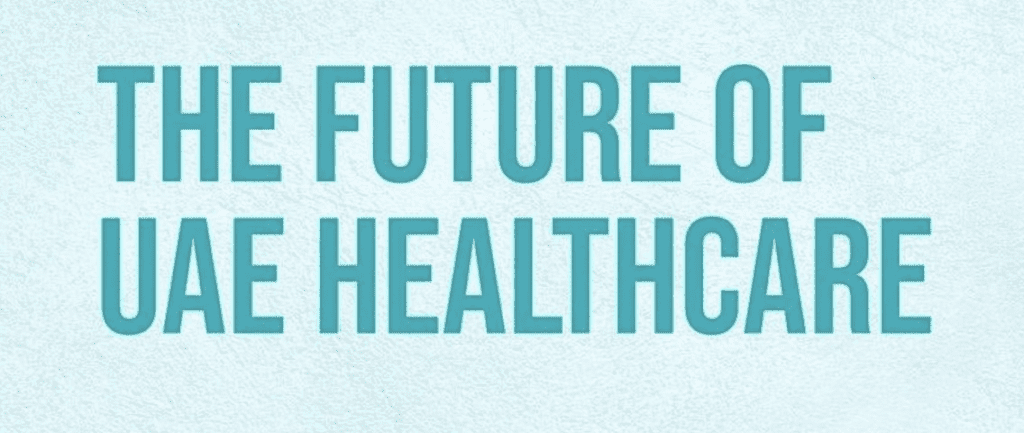
On the 21st of October 2022, Advance Health hosted an extremely interesting session on the future of healthcare in the UAE in Dubai Science Park. Presentations were given by Dr Nahed Abdulkhaleq Monsef, Director of Strategy, Dubai Health Authority, and Dr. Omar Najim, Director of Executive Affairs and Special Projects Office, Department of Health, Abu Dhabi. Dr Ali Alessandro Ayach, senior director at Alvarez and Marsal, Strategy and Performance Improvement, Dubai, also joined the panel discussion. The discussion was moderated by Marwan Abdulaziz, senior VP of Dubai Science Park.
Key topics included how digitization is becoming more prominent in the field of medicine.They also discussed the roles of key players in the industry and what the future holds for innovation and growth in the UAE’s healthcare sector
How the UAE is turning challenges into opportunities
Despite the many challenges currently facing the world, under the wise leadership of the country’s rulers, the UAE is continuing to grow and develop. The United Arab Emirates is a safe, desirable place to live, work, and invest. It welcomes visitors from all over the world. The UAE was ranked first in the world for COVID-19 vaccination rates (Our World in Data, 2021) and testing rates (Statista, 2020). In 2021, Bloomberg ranked Abu Dhabi in first place and Dubai 6th for COVID resilience.
The UAE is a global logistics hub and played a vital role in COVID-19 vaccine supply chain solutions through the HOPE Consortium of partners. With continuing research and development, the UAE is working to be ready for new challenges and emerging diseases.
Life expectancy in the UAE is increasing, but, as in other countries, so is the burden of chronic diseases such as cardiovascular and musculoskeletal diseases, and mental health issues. Responding to changing needs and expectations of its citizens and residents, the UAE’s healthcare system is shifting its focus to holistic, personalized, and preventive care. Innovative technologies are being leveraged to provide integrated, value-based care. This aims to improve clinical outcomes and health indicators.
The UAE’s growing healthcare sector
Although oil was the initial driver of economic growth in the UAE, the country has diversified its economy into many sectors, including healthcare and innovation. The UAE’s GDP is increasing, along with healthcare expenditure. Average healthcare expenditure per capita in the GCC (Gulf Cooperation Countries) is forecasted to grow by 9% CAGR. A strong private sector, in collaboration with government entities, is driving growth in healthcare infrastructure. This improves capacity and access to specialized care.
The strategy from the Department of Health in Abu Dhabi includes enabling healthier lifestyles, creating high-quality care delivery models to improve outcomes, and ensuring a responsive and resilient health system.
The government provides well-regulated mandatory health insurance coverage for Emirati citizens, while employers mostly provide it for expat residents. However, some gaps still need addressing to achieve 100% universal health coverage.
The UAE is also fast becoming a regional and global hub for medical tourism. Medical education, research, and development within the country are also growing. Life science research and innovation thrive with the support of initiatives such as Dubai Science Park, the Department of Health’s Research and Innovation Center, and the Al Jalila Foundation’s multidisciplinary medical research center.
Digital innovation for health
Digital innovation is the key driver of growth in the UAE’s healthcare sector. This is demonstrated by a variety of initiatives such as:
Virtual care platforms
In the UAE, there has been significant investment in telemedicine and virtual care services by public and private healthcare providers as well as health insurance companies.
Robotic-assisted surgeries
Robot-assisted surgery is available in many hospitals across the UAE. It enables procedures to be performed more precisely and accurately, with fewer complications.
3D printing and simulation technology
In the UAE, 3D printing and simulations find many applications in surgery and medical education
Unified health information exchanges
Malaffi in Abu Dhabi and Nabidh in Dubai are unifying digital medical records to increase care coordination and reduce duplication. Patients can securely access their own medical records and control permissions for access by public and private healthcare providers. There are plans to integrate the health information exchange systems within the UAE in the future.
Genome sequencing and precision medicine
The Emirati Genome Programme plans to sequence the genomes of 1 million Emirati citizen volunteers. The results will provide valuable data on population health and eventually lead to the development of personal gene therapy and precision medicine. Regulation of this field is paying careful consideration to issues of ethics, consent, education, and data protection.
Related Articles:
Future opportunities and challenges
Investing in the future
The UAE, as a logistics, manufacturing, and innovation hub for the region, will continue to be a magnet for talent and investment. However, there is a need for more investment, especially for homegrown investors to move into the healthcare innovation sector. There was a discussion that venture capital involves taking risks and investors need to focus on opportunities and growth over the long term.
The UAE has instituted a health technology assessment process to evaluate the value of proposed new technologies for healthcare. To fully leverage new technologies in healthcare, we require insurance coverage. We have discussed that the ICT and CPT insurance codes are currently under review.
Investing in the workforce
The healthcare workforce in the UAE and the ability to recruit, train, and retain talent in the country, are crucial. Further unifying medical licensing between the different authorities in the UAE will be beneficial.
The future of healthcare will see growth in the use of artificial intelligence, machine learning, and automation. We will need to invest in AI engineers, data scientists, and data governance experts to acquire the new competencies and skills. With the increasing popularity of the metaverse, virtual and augmented reality, healthcare needs to catch up. This requires investment in both technology and training healthcare professionals.
Ensuring robust regulation
Digital healthcare technologies produce large volumes of personal and sensitive data that require robust regulation to ensure biosecurity, cyber-security, and data protection. Policies are also required to regulate access to data for research purposes. As global health providers increasingly provide cross-border care, this also needs international regulation.
In summary
The UAE’s innovative and growing healthcare sector stands ready to leverage new technologies and increasing digitization. With continued robust regulation and investment in research and development, the UAE is poised to further solidify its position as a hub for high-quality healthcare and innovation.

Watch the full session here #DubaiSciencePark #healthcare #innovation #medicine #uae
Advance Health by Dubai Science Park organizes regular sessions on exciting topics linked to the healthcare industry. The next meeting is planned for 25th November.


